News & Views – Loneliness, Resilience & Wellbeing
Estimated reading time: 10 minutes
Listen to this week’s news above or read on!
We enjoy sharing information about technology, wellbeing, housing and social care that we find interesting. For the past year, our social media was the main place that we published these articles and news stories. Our blog has mainly covered internal news and more recently our interviews with experts in the social care and wellbeing sectors.
Our mission is very much about educating and helping people learn more about the potential of smart home technologies. Making this information accessible and in a format that is easy to refer back to is also really important, hence this weekly round-up.
In this week’s instalment, I’ll provide insight into:
- The impact of loneliness on the brain.
- How your gut microbiome is linked to brain health.
- The growing challenge associated with lack of family members to support in older age.
- How tech can help fill the gap of family support.
- Ways to get started practicing gratitude.
- A new free online course to support dealing with difficult thoughts and situations.
- Supporting resilience and wellbeing for young people.
Last Week’s News & Views
Loneliness
Loneliness awareness week is coming up. While I believe it’s great that we are now finally acknowledging how important it is to support people who are lonely and create a safe and open environment where people feel comfortable to ask for help, what I struggle seeing is the negative language around loneliness and mental health. Headlines sensationalise it as the next pandemic even more deadly than coronavirus. Support services and groups talk about “beating” and “tackling” loneliness, when really the actual interventions needed are far gentler and more ingratiatory.
The reasons why a person may feel lonely or become lonely are complex and not limited to the influences of global pandemics, loneliness was an issue long before Covid-19.
New Study Shows Recovering from Loneliness can Build Brain Resilience
According to a new study, the brain-boosting benefits of psychological resilience brought on by persistent loneliness may help to reduce the risk of dementia later in life. It’s vital to note, however, that this beneficial effect is contingent on the loneliness being transient in nature to allow the person to recover.
Loneliness that persists poses a serious threat to people’s mental health. “We think because human beings are social and need social interaction, without interaction, the brain can lose external stimulation, which can increase Alzheimer’s risk”, said study author Dr. Wendy Qiu.
You can read more about this research on how persistent and transient loneliness impact the brain here.
You can also read more about similar research which looked at the differences between brains of lonely individuals and those who don’t experience loneliness, in an article we published earlier in the year by clicking here.
Does Your Gut Microbiome Influence Your Emotions and Brain Health?
University of California San Diego School of Medicine have recently published a study which involved 187 participants, ages 28 to 97, specifically looking at gut health and loneliness, wisdom, compassion, social support and social engagement.
The human gut microbiome is comprised of trillions of microbes, including bacteria, viruses and fungi, that live within the digestive tract.
The research builds on previous findings that a “gut-brain axis” exists which links intestinal function to the emotional and cognitive centres of the brain. Changes in the gut microbiota have been linked to changes in stress response and behaviour, ranging from emotional arousal to higher-order cognitive functions like decision-making.
Study author, Tanya T. Nguyen, said: “We found that lower levels of loneliness and higher levels of wisdom, compassion, social support and engagement were associated with greater phylogenetic richness and diversity of the gut microbiome”.
One theory to explain the findings is that a more diverse gut microbiota is less susceptible to infiltration by outside pathogens, making the body more resilient and less likely to have to defend itself from disease. A healthy, diverse gut microflora may even protect against the negative effects of stress.
You can read more about the “gut-brain axis” here.
One in Five Older Adults are Ageing Without Children
I learned a new acronym this week, Ageing Without Children (AWOC). I am ageing without parents, as my dad passed away when I was just 20 and my mum passed away nearly 6 years ago. The statistic that over 20% of older adults are ageing without children is really important as for most people it is close family who offer the majority of support. There is no absolute definition for what constitutes AWOC, but it includes people who have not had children either through choice, infertility or circumstance; people who have had children, but whose children have predeceased them or children that live too far away to support their parents.
As a response to this statistic, Talk, Eat and Drink (TED) Ageing Better has launched a project that aims to combat loneliness among this group. The project offers online support, information and access to a wider community to help people overcome loneliness.
A spokesman for TED said: “For too long, it’s been a subject that has not been talked about or acknowledged due to embarrassment and misplaced shame. AWOCs are a growing in numbers and are likely to continue to increase in future decades. They have had no acknowledgement of their challenging situation, or familial status, and offered little or no support”.
You can read more about this initiative here.
New Service Naborforce Offers Helping Hand
Naborforce is an online (and phone) matching service based in Virginia, USA, which connects older people who require support to a network of insured community members called “Nabors”. The Nabors tend to be empty nesters and retirees with spare time who are eager to help. Founder and Chief Executive of Naborforce, Paige Wilson, says such Nabors are people “seeking purpose and connections in their own lives”, who can earn some extra income while supporting their community.
While not available in the UK, I thought this was interesting to share as it shows that the tech world is really waking up to how important services like this are. Naborforce recently won the Consumer Technology Association (CTA) Foundation Pitch Competition, sponsored by AARP Innovation Labs. The competition took place virtually in March, rather than where it had been previously held as part of the world’s biggest tech trade show, CES in Las Vegas at the start of the year.
To read more about the Naborforce win, visit this link here.
Wellbeing
We like to collect a diverse range of ideas on wellbeing, so that we can share them with you. We recognise that what works for one person might not be right for you. We encourage you to try new things and see what you enjoy and what helps you.
Regularly Practicing Gratitude Boosts Wellbeing
A gratitude journal is a great way to keep track of the good things in your life and writing in it every day can encourage you to develop a more positive outlook. You can find out more about the wider benefits of practicing gratitude as well as lots of tips and advice to help you get started in this piece on the Positive Psychology website.
Daily journaling can:
- Help you to become more mindful.
- Encourage you to be more balanced.
- Help you to notice the good things that are happening.
- Help you to feel more accomplished.
Our friends over at My Self Love Supply have a lovely physical journal structured to help you, or you can also purchase one of their ebook guides.
New Calm Distress Course Created by NHS Lanarkshire Available Online
The NHS Lanarkshire Mind Matters service has recently launched a new online course called Calm Distress to helps people deal with difficult feelings.
The “Calm Distress” therapy course consists of five videos, each one lasting about 20 minutes, plus downloadable material, designed to “help you open up to day-to-day stress, recognise your warning signs, and learn new ways to cope with distress and to keep it at bay”.
Clinical psychologist, Dr Alison McCusker, who led the development of the course, says “the idea is simple; to provide high-quality, evidence-based therapeutic ideas in a way that anyone with an internet connection can access.”
You can learn more about the initiative here.
Activities for Young People Can Boost Resilience and Wellbeing
I know for our family it has made a huge difference getting the kids back to their hobbies. Our kids really enjoy their judo, gymnastics, swimming, music, Brownies and Scouts. Most of these activities were able to continue virtually during lockdown (with the exception of swimming, as our inflatable hot tub really didn’t allow much movement!). However, for the kids, it isn’t the same as being able to see their teachers in person and their friends.
These activities can help teach young people so much about themselves and that through regular practice they can achieve amazing things. I remember vividly this time last year during an online gymnastics class my daughter getting upset as she couldn’t do the splits. This week she came home beaming because she is now doing it and was so proud because the teacher took a photo of her achievement. That’s the result of a whole year of just getting better a tiny bit at a time. The ability to persevere in the face of adversity is critical to our children thriving in the future.
I really liked this story that I read recently about the Leus Family Foundation, which aims to support young people in developing a resilient mindset when facing adversity and to raise awareness of the importance of taking good care of your mental health.
Dmitry Leus, the driving force behind the initiative is a former European fencing champion. I learned fencing as part of my Duke of Edinburgh award activities, and I think a bit like martial arts it is a great sport for learning discipline, respect and patience.
What really struck me was the comments that the article quoted from Professor Russell Viner, president of the Royal College of Paediatrics and Child Health and a member of the Scientific Advisory Group for Emergencies (SAGE) who says “We can talk about what we think the loss of education will do; we can say what we think the harms are around mental health. But it’s also the more subtle stuff. Have we shifted a whole generation towards anxiety and being more risk-averse? Have we shifted a whole generation away from physical contact, and all the things that come with human contact that bring benefits to us? Those are all the things we don’t know.”
I think these are really important questions going forward. It is hard to imagine us ever being able to go back to life before without masks and restrictions on physical contact. This is bound to have a lasting impact on our young people.
You can read more about the Leus Family Foundation’s mission here.
Key Takeaways
The research into loneliness and our wellbeing is so important to help inform not only government policy but to help us individually at a practical level understand how we can best support our minds and bodies. I find the idea that our gut microbiome has a strong influence on our brain health quite fascinating and it’s certainly made me think a lot more about what I can do to support a healthy gut.
Recently I’ve been doing a lot of work on myself to try and focus on the positives and the things within my control to prevent stress building. I hope you find the links that I’ve shared this week helpful. Practicing gratitude takes literally only a few minutes every day but has a very powerful cumulative effect. If you want to have a go creating a gratitude list on your Alexa, you can check out our Gratitude List guide to see how to set this up.
If you are catching up on news you can also read last week’s News and Views post on wellbeing and why it matters here.
If you liked this post, subscribe to our mailing list to be notified when we have new posts and support material available. We also often share exclusive additional content here, including updates on the business and life in general. Emails typically go out once every two weeks, so we promise that we won’t overload your inbox!



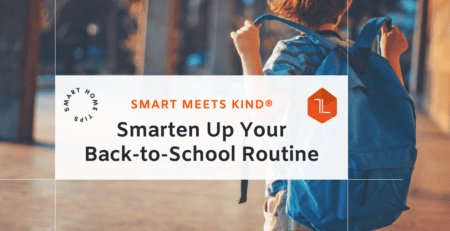
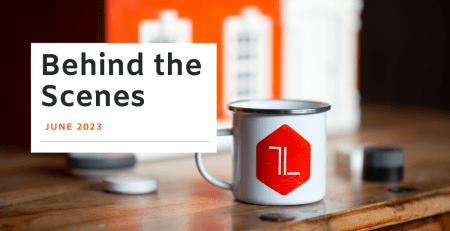

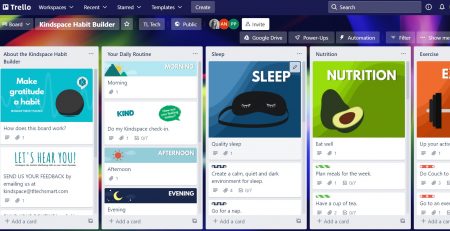

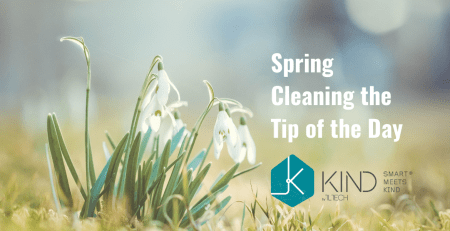
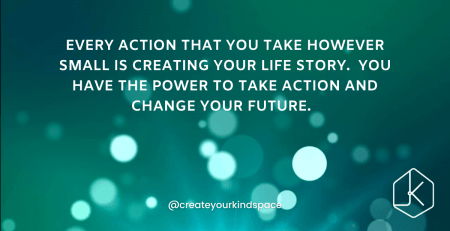
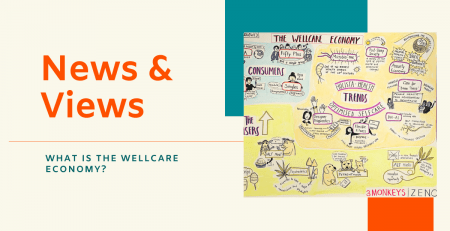

Leave a Reply